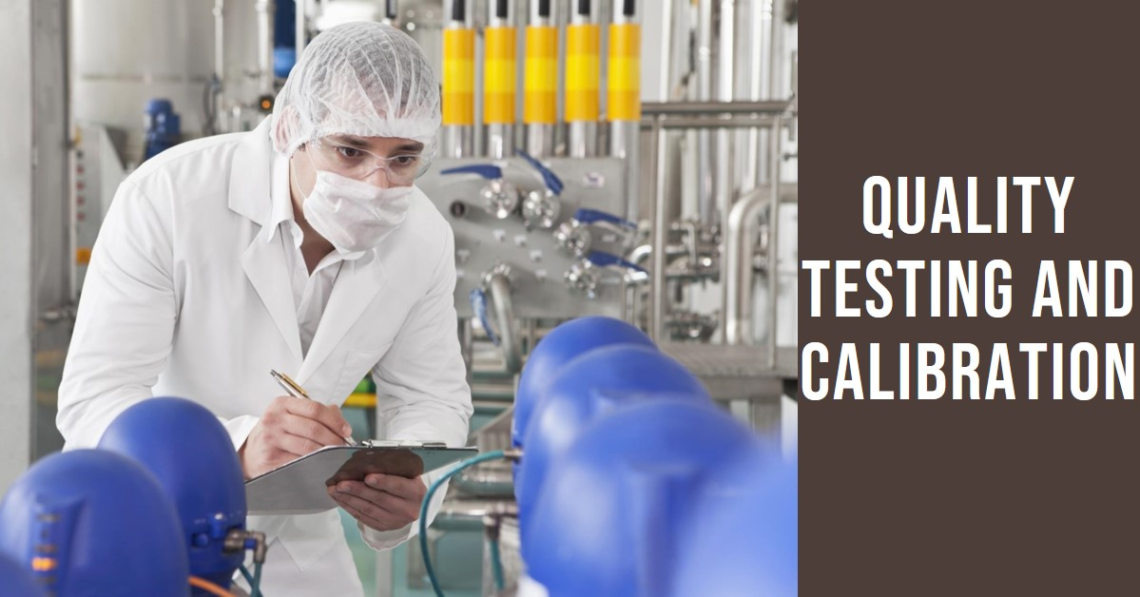In today’s competitive landscape, the accuracy and reliability of test results are paramount for businesses, healthcare, and research institutions. This is where NABL accredited labs come into play. The National Accreditation Board for Testing and Calibration Laboratories (NABL) ensures that laboratories meet international standards in testing and calibration. In this article, we will explore the significance of NABL accreditation, the criteria involved, the benefits it offers, and how it affects various sectors.
What is NABL?
The National Accreditation Board for Testing and Calibration Laboratories (NABL) is a constituent board of the Quality Council of India (QCI). Established in 2006, NABL’s primary aim is to provide national-level accreditation to laboratories, ensuring that they meet specific standards of quality and reliability. Accreditation by NABL signifies that a laboratory operates in accordance with international guidelines and is competent to perform specific tests and calibrations.
Importance of NABL Accreditation
NABL accreditation plays a crucial role in several sectors, including healthcare, manufacturing, pharmaceuticals, and environmental monitoring. Here are a few reasons why NABL accreditation is vital:
- Trust and Reliability: NABL accreditation assures clients that the test results are accurate and reliable. This trust is crucial in sectors like healthcare, where test results can directly impact patient care.
- Quality Assurance: Laboratories undergo rigorous evaluations, ensuring they adhere to quality management systems (QMS) and standard operating procedures (SOPs). This leads to consistent performance and high-quality results.
- International Recognition: NABL is a signatory to the International Laboratory Accreditation Cooperation (ILAC), which means that accredited labs are recognized internationally. This is beneficial for businesses looking to expand globally.
- Regulatory Compliance: Many industries require compliance with local and international regulations. NABL accreditation helps labs meet these requirements, thereby enhancing their credibility.
- Competitiveness: For laboratories, being NABL accredited can be a competitive advantage, as it demonstrates commitment to quality and reliability. This can attract more clients and enhance business prospects.
Criteria for NABL Accreditation
The process of NABL accreditation is thorough and requires laboratories to meet several stringent criteria, including:
- Management System: Laboratories must implement a quality management system in line with ISO/IEC 17025 standards. This includes documentation of processes, quality policies, and organizational structures.
- Technical Competence: Labs need to demonstrate technical expertise in the tests and calibrations they perform. This involves validating methods and ensuring personnel are adequately trained.
- Equipment and Facilities: Proper maintenance and calibration of equipment are mandatory. Laboratories must maintain an appropriate environment to conduct tests accurately.
- Quality Control: A robust quality control mechanism must be in place to monitor and ensure the accuracy and reliability of test results. This includes regular internal audits and corrective actions.
- Traceability: Test results must be traceable to national or international standards. This is crucial for maintaining the integrity of results.
Benefits of Choosing NABL Accredited Labs
When you choose NABL accredited labs for your testing and calibration needs, you unlock several benefits:
1. Enhanced Accuracy
NABL accredited labs follow strict protocols and guidelines that ensure the accuracy of their test results. This is particularly important in sectors such as healthcare, where precision is crucial.
2. Improved Confidence
Clients can have increased confidence in the results provided by NABL accredited labs. This confidence is essential when making critical decisions based on test results.
3. Access to a Wider Range of Services
NABL accreditation covers various fields, including chemical testing, biological testing, mechanical testing, and calibration services. This diversity allows clients to access multiple services from a single provider.
4. Streamlined Processes
NABL accredited labs often have streamlined processes that lead to quicker turnaround times for results. This efficiency is advantageous for businesses that require prompt testing.
5. Competitive Advantage
For businesses that utilize NABL accredited labs, there is a competitive edge in the marketplace. Clients often prefer labs with accreditation, leading to better business opportunities.
Sectors Benefiting from NABL Accredited Labs
1. Healthcare
In the healthcare sector, accurate and reliable testing is critical for diagnosis and treatment. NABL accredited labs ensure that blood tests, pathological tests, and diagnostic imaging are performed under stringent quality standards. According to the Indian Council of Medical Research (ICMR), accurate testing significantly impacts patient outcomes, making NABL accreditation vital for healthcare providers.
2. Pharmaceuticals
Pharmaceutical companies rely on NABL accredited labs for quality control and assurance in drug development. These labs conduct stability testing, active ingredient analysis, and compliance testing, ensuring that products meet regulatory standards set by organizations like the Food and Drug Administration (FDA) and the Central Drugs Standard Control Organization (CDSCO).
3. Environmental Testing
Environmental testing is crucial for assessing pollution and ensuring compliance with environmental regulations. NABL accredited labs perform tests on soil, water, and air samples, helping companies and governments monitor and manage environmental health.
4. Manufacturing
In manufacturing, NABL accredited labs conduct quality assurance testing for raw materials and finished products. This ensures that products meet specifications and industry standards, reducing the risk of defects and recalls.
5. Food Safety
Food safety is a critical concern globally. NABL accredited labs perform microbiological and chemical testing on food products, ensuring that they are safe for consumption and comply with health regulations.
How to Choose a NABL Accredited Lab
When selecting a NABL accredited lab, consider the following steps:
- Check Accreditation: Verify the lab’s NABL accreditation status through the NABL website or directly with the lab.
- Assess Capabilities: Ensure that the lab offers the specific testing or calibration services you need.
- Review Turnaround Times: Inquire about the typical turnaround time for results, especially if you need them urgently.
- Examine Experience: Look for labs with a proven track record in your specific industry.
- Ask for References: Seek testimonials or references from other clients to gauge their satisfaction with the lab’s services.
Conclusion
NABL accredited labs are essential in today’s world, where accuracy and reliability in testing and calibration are non-negotiable. They ensure that organizations across various sectors can rely on accurate data to make informed decisions. By choosing a NABL accredited lab, you are investing in quality, reliability, and peace of mind.
Whether you are in healthcare, pharmaceuticals, manufacturing, or environmental monitoring, NABL accredited labs provide the assurance that your testing and calibration needs will be met with the highest standards.
Are you considering using NABL accredited labs for your testing and calibration needs? What factors do you think are most important in ensuring quality results?
Also know Maintaining Optimal Oral Health: A Comprehensive Guide





